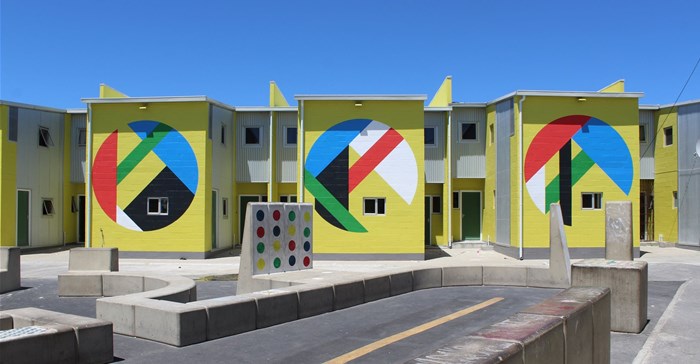
Without radical, decisive action combined with the necessary political backing, the national housing crisis threatens to escalate beyond control, says Mmamoloko Kubayi, minister for Human Settlements.
In Khayelitsha, one of South Africa’s largest and most marginalised informal settlements, Cape Town-based NPO Urban Think Tank Empower (UTTE) has developed a radical housing model which has taught that dignified, affordable housing can become a reality for all South Africans – with the right support.
Launched in 2013, phase one of UTTE’s Empower initiative has already helped to transform the lives of over 350 Khayelitsha residents living in 72 Empower homes designed in line with their needs, aspirations and cultural values.
Many of the innovations pioneered by the collaborative, community-first Empower Upgrade Model seem obvious, yet they’ve never been implemented in South Africa’s informal settlements. For example, building double-storey Empower homes upwards instead of outwards has helped to make best use of scarce available land while maximising living space. This is particularly important given that the average number of people per informal settlement dwelling is relatively high.
Another important innovation involves giving the residents a direct say in designing their own homes and their own neighbourhoods. As a result, Empower homes provide safe and decent housing for families within their existing communities without relocating them to random, potentially remote RDP sites.
Commenting on the gaps in current housing provision, Delana Finlayson, managing director at UTTE, says: “No-one can challenge the admirable intentions behind RDP housing. However, the programme's focus on quantity over quality has produced houses that do not always meet the needs of the people living in them.
“We’re confident that scaling up and replicating our housing model can help to deliver the promise of ‘housing security and comfort’ for all South Africans, as enshrined in the 1955 Freedom Charter.”
Drawing on lessons learned during phase one of the Empower campaign, UTTE is now poised to deliver even more dignified, affordable homes as phase two gets underway. This phase will start with the construction of another 70 Empower homes along with public spaces and shared assets such as a community hall, urban farm and solar power installation.
Next steps will involve expanding the project to nine more sites in Khayelitsha. Long-term, UTTE is confident that its Empower Upgrade Model is capable of playing an instrumental role in ending South Africa’s chronic housing crisis by delivering more new Empower homes to more communities in the years ahead.
Commenting on the project’s transformative impact, Alderman Eddie Andrews, deputy mayor of Cape Town and Mayoral Committee Member for Human Settlements, says: “Cape Town is a growing city, facing the many pressures of emigration and urbanisation. We have to be mindful not to remain reactive in our efforts, and it is equally important to look through a proactive lens to ensure we sustainably respond to these pressures.
“The City of Cape Town is very supportive of the work done by the Empower team and its partners for the people of this community. The team has shown us how much we can achieve through visionary collaborations that combine proven technical know-how with bold innovation to address the very real challenges facing people living in our informal settlements.
“Further to this, their innovations support our goals to reduce our carbon footprint by using nature-based solutions to our challenges.
“The Empower Upgrade Model also places the wellbeing and aspirations of the community at the forefront of the housing process by restoring dignity, security and hope to community members. This model is a sustainable response to a growing city.”